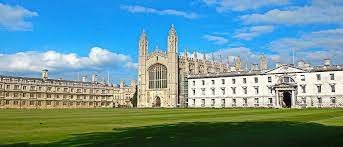New Zealand is an ideal destination for international students who are looking for an affordable and high-quality master’s degree program. The country offers many top-notch universities that provide a world-class education, and tuition and living expenses are generally much lower than in other developed countries.
Furthermore, New Zealand is a safe and welcoming country with stunning natural scenery, making it an attractive place to live and study. With so much to offer, it’s no wonder that more and more students are choosing New Zealand as their destination for higher education.
In this blog post, we will explore some of these institutions for master’s degree programs and their school fees to help you make an informed decision.
Criteria For Master’s Degree In New Zealand for Masters Degree
Before diving into the options for affordable Master’s programs in New Zealand, it’s essential to understand the admission criteria that typically apply across universities:
- A Bachelor’s degree: Applicants must have completed an undergraduate degree in a relevant field with a satisfactory grade point average (GPA).
- Proof of English proficiency: International students whose first language is not English are required to provide evidence of proficiency through tests like IELTS or TOEFL.
- Letters of Recommendation: Most programs require two to three letters of recommendation from academic or professional references.
- Statement of Purpose: A well-written statement outlining the applicant’s academic interests, professional goals, and reasons for choosing the specific program.
- CV/Resume: A detailed curriculum vitae or resume showcasing academic qualifications, work experience, and any research or projects undertaken.
Depending on the program, there might be additional prerequisites such as portfolios for design courses or GMAT scores for business programs.
Cheap Schools and Universities in New Zealand for Master’s Degree and Their School Fees
If you’re considering pursuing a Master’s degree in New Zealand but are concerned about the cost, don’t worry. There are several affordable schools and universities in the country that offer high-quality programs. Some of the most cost-effective options include:
1) The University of Waikato
Located in the heart of the North Island, The University of Waikato stands out for its commitment to innovative learning and strong community engagement. Offering a diverse range of Master’s programs, from Indigenous Studies to Cyber Security, the university caters to a wide spectrum of academic interests.
For international students, the tuition fees are comparatively affordable, averaging around NZD 22,000 to NZD 30,000 per year. This institution prides itself on a vibrant campus life, enhanced by modern facilities and a supportive academic environment. Students benefit from a hands-on learning approach, designed to equip them with practical skills and real-world insights.
- Estimated Tuition Fee: NZD 22,000 to NZD 30,000 per year.
2) Massey University
Massey University is acclaimed for its distinctive educational approach, blending traditional learning with innovative research opportunities across disciplines like Business, Creative Arts, and Sciences. Particularly appealing for international students is its affordability, with tuition fees ranging between NZD 24,000 to NZD 32,000 annually.
Massey’s campuses in Palmerston North, Wellington, and Auckland each offer a unique atmosphere, but all share a commitment to providing a supportive learning environment. The university’s emphasis on distance learning also makes it an excellent option for students seeking flexibility in their studies, allowing them to balance academic commitments with personal obligations efficiently.
Estimated Tuition Fee: NZD 24,000 to NZD 32,000 annually.
3) Victoria University of Wellington
Victoria University of Wellington is renowned for its strong research culture and wide range of Master’s programs, spanning from Humanities to Science and Engineering. This institution, nestled in the capital city, offers a vibrant urban campus life intertwined with New Zealand’s political and cultural hub.
International students can expect tuition fees to be in the range of NZD 27,000 to NZD 35,000 annually. Victoria University of Wellington emphasizes a comprehensive educational approach, combining rigorous academic studies with practical, real-world applications. The university’s commitment to fostering an inclusive and supportive academic community makes it a compelling choice for students from around the globe.
Estimated Tuition Fee: NZD 27,000 to NZD 35,000 annually
4) University of Canterbury
Nestled in the vibrant city of Christchurch, the University of Canterbury boasts a long-standing reputation for excellence across a wide array of Master’s degree offerings, including disciplines such as Engineering and Arts.
With tuition fees averaging NZD 26,000 annually for international students, it represents a cost-effective choice without sacrificing quality. The institution is celebrated for its welcoming campus atmosphere and comprehensive research facilities, providing an enriching environment for academic exploration and professional development.
Estimated Tuition Fee: NZD 26,000 annually
5) Lincoln University
Situated in the serene landscapes near Christchurch, Lincoln University distinguishes itself by focusing on sectors like agriculture, while also providing degrees in commerce, environmental management, and science. For those looking into a Master’s degree, Lincoln stands as a beacon of affordability, with the average tuition fees for international students being approximately NZD 29,000 annually.
The university’s approach to education is notably practical and industry-driven, preparing students for real-world challenges with an emphasis on sustainability and innovation. This institution’s smaller size fosters a tight-knit community and personalized learning experience, making it an appealing option for students aiming for a specialized education in their chosen field.
Estimated Tuition Fee: NZD 29,000 annually.
Read Also: PhD Scholarships in Green Cryptocurrency Technologies at RMIT University in Australia
FAQS
How much is Master’s school fees in New Zealand?
The cost of a Master’s degree in New Zealand can vary depending on several factors:
- Public vs. Private Universities: Public universities are generally cheaper, with tuition fees typically ranging from NZ$22,000 to NZ$35,000 (US$14,000 to US$22,000) per year. Private universities can be substantially more expensive, sometimes exceeding NZ$40,000 (US$25,000) annually.
- Program Type: Specialized fields like business or medicine often have higher fees, even at public universities.
- University’s Prestige: More prestigious universities may have slightly higher costs.
Which university is the cheapest in New Zealand?
There isn’t a single “cheapest” university because fees can vary by program. However, public universities generally offer the most affordable options. Consider researching institutions like:
- University of Auckland
- Victoria University of Wellington
- Massey University
These are well-regarded public universities with a range of Master’s programs at varying costs.
How much are school fees for non-residents in New Zealand?
International students, including non-residents, typically pay similar tuition fees to domestic students at public universities in New Zealand. There may be some additional fees specific to international students, so it’s important to check with the university directly. Private universities may have separate fee structures for international students.
How long is a Master’s course in New Zealand for international students?
A Master’s course in New Zealand for international students typically takes 1.5 to 2 years to complete, depending on the program and the number of credit hours required.
Is New Zealand cheap for Masters?
New Zealand can be a relatively affordable option for Master’s degrees compared to some Western countries, especially considering public university fees. However, factor in living expenses like accommodation, food, and transportation when evaluating affordability. Scholarships and financial aid opportunities can further reduce costs.
Conclusion
New Zealand offers a plethora of affordable options for pursuing a Master’s degree, each with its unique blend of academic excellence, supportive learning environments, and practical, industry-aligned curricula. From the University of Waikato’s innovative learning strategies to Lincoln University’s specialized focus on agriculture and sustainability, students have the opportunity to select institutions that not only fit their budget but also align with their academic and professional aspirations. By considering the options outlined, prospective students can make an informed decision, ensuring a fulfilling and financially viable educational journey in one of the world’s most picturesque and welcoming countries.






